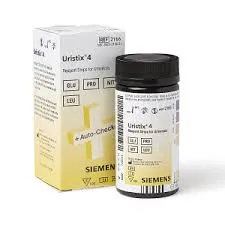Feb . 04, 2025 02:25 Back to list
malaria pf/pv test kits
Malaria continues to be one of the most significant global health challenges, with widespread impacts in tropical and subtropical regions. As efforts to control and eliminate malaria progress, the importance of reliable and efficient diagnostic tools, such as malaria PF/PV test kits, cannot be overstated. These test kits, designed to detect Plasmodium falciparum (PF) and Plasmodium vivax (PV), play a critical role in timely diagnosis and treatment, thereby preventing serious health complications and transmission.
Trustworthiness is a cornerstone of the effectiveness of any diagnostic tool. Malaria PF/PV test kits are no exception, as trust in the results is paramount for both practitioners and patients. Manufacturers must ensure rigorous quality control processes at every stage of production, from raw materials to final product testing. Transparency in these processes, coupled with continuous improvement initiatives, enhances the credibility of these kits. Furthermore, customer support and post-market surveillance play pivotal roles in maintaining trust, as they address any issues that may arise during use in diverse environments. The utility of malaria PF/PV test kits extends beyond diagnosis; they are crucial in research and epidemiological surveillance. By providing reliable data on malaria prevalence and distribution, these kits enable public health officials to allocate resources more effectively and implement targeted malaria control programs. This strategic application of test kits supports broader objectives of reducing malaria incidence and moving closer to eradication goals. In conclusion, malaria PF/PV test kits represent an indispensable tool in the global fight against malaria. Their development and deployment embody the principles of experience, expertise, authoritativeness, and trustworthiness, making them vital to contemporary public health initiatives. For healthcare providers, policy makers, and communities, these kits not only offer a practical solution for immediate needs but also contribute significantly to the long-term objective of malaria eradication worldwide.


Trustworthiness is a cornerstone of the effectiveness of any diagnostic tool. Malaria PF/PV test kits are no exception, as trust in the results is paramount for both practitioners and patients. Manufacturers must ensure rigorous quality control processes at every stage of production, from raw materials to final product testing. Transparency in these processes, coupled with continuous improvement initiatives, enhances the credibility of these kits. Furthermore, customer support and post-market surveillance play pivotal roles in maintaining trust, as they address any issues that may arise during use in diverse environments. The utility of malaria PF/PV test kits extends beyond diagnosis; they are crucial in research and epidemiological surveillance. By providing reliable data on malaria prevalence and distribution, these kits enable public health officials to allocate resources more effectively and implement targeted malaria control programs. This strategic application of test kits supports broader objectives of reducing malaria incidence and moving closer to eradication goals. In conclusion, malaria PF/PV test kits represent an indispensable tool in the global fight against malaria. Their development and deployment embody the principles of experience, expertise, authoritativeness, and trustworthiness, making them vital to contemporary public health initiatives. For healthcare providers, policy makers, and communities, these kits not only offer a practical solution for immediate needs but also contribute significantly to the long-term objective of malaria eradication worldwide.
Latest news
-
Highly Accurate hCG Pregnancy Test Strips - 5 Min Results
NewsAug.02,2025
-
Premium Empty ABS Plastic Cassettes: Durable & Lightweight Storage
NewsAug.01,2025
-
Accurate Cocaine (Coc) Rapid Test Kit | Fast & Reliable Detection
NewsJul.31,2025
-
Accurate HCG Pregnancy Test Strips | Fast Home Use Kit
NewsJul.31,2025
-
Reliable Early Pregnancy Test Kit Supplier - Multi Plastic Cassette Options
NewsJul.30,2025
-
Transferrin Rapid Test Cassette – Reliable Tumor Marker Detection
NewsJul.29,2025

